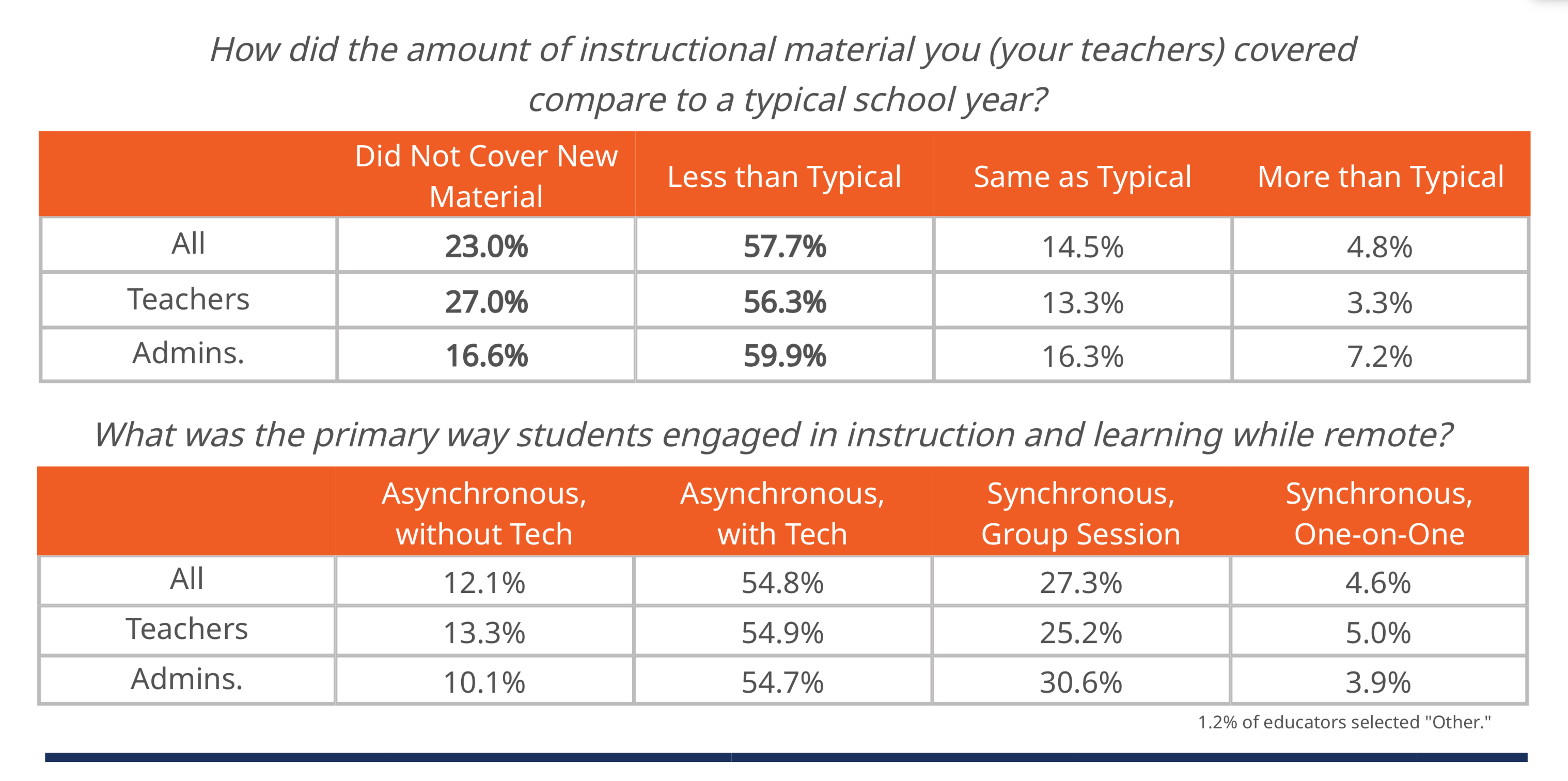Educators Say Little New Academic Material Covered During Pandemic
The vast majority of educators say schools covered fewer instructional materials or no new instructional territory during the initial wave of online learning this fall, but they also believe it will take technology to overcome COVID-19 learning losses.
Those were among the findings of a national study of 788 teachers and administrators, which found that 86 percent believe that more tech will be needed in schools over the next three years as the country navigates through its recovery from the COVID-19 crisis, according to research conducted at the end of the 2019-20 school year by the University of Virginia’s school of education and the EdTech Evidence Exchange.
Researchers also found that 82 percent of those polled believe students will need more personalized instruction this fall.
Complicating matters is the anticipation of some schools’ reopening for in-person classes this fall — and what some fear will be their subsequent closing as COVID-19 cases emerge in different regions, and students are sent home to quarantine. (See Education Week’s “schools reopening” tracker, which sheds light on the reopening plans of school districts around the country.)
If the last school year is any indication, it could be a disruptive scenario as clusters of COVID-19 cases are expected to wax and wane.
Compared to a typical school year, teachers covered 58 percent less instructional material than they normally would, and 23 percent did not cover new material when learning moved home, according to the new survey results.
Most instruction and learning (55 percent) was delivered asynchronously with technology, while 12 percent were delivered asynchronously without tech. (See the table below.)

The findings are significant at this time, “given that in many cases we don’t actually know what technology tools work best for the unique context of each educator and school,” said Bart Epstein, CEO of the Exchange and Research Associate Professor at the University of Virginia.
“If teachers think that technology will be a crucial part of our recovery, it’s going to be really important that we figure out what works as soon as possible.”
The EdTech Evidence Exchange—a nonprofit affiliated with the University of Virginia Curry School of Education and Human Development—was formerly known as the Jefferson Education Exchange. Its goal is to help determine what ed-tech products work, as well as when, where, and how they work.
Follow EdWeek Market Brief on Twitter @EdMarketBrief or connect with us on LinkedIn.
See also:
- Wanted: Curriculum Providers Who Can Help Students With COVID-19 Learning Loss
- Evidence of Effectiveness, Easy Integration Are High Priorities for Personalized Learning Purchases
- In Judging Instructional Products, Educators Have This Message: Show Us Your Evidence
- Collaboration Platforms, Privacy Tools Critical to Driving Ed-Tech Innovation, Report Says
- K-12 Demand for Mobile Devices ‘Skyrocketing’ Due to COVID-19 Remote Learning
